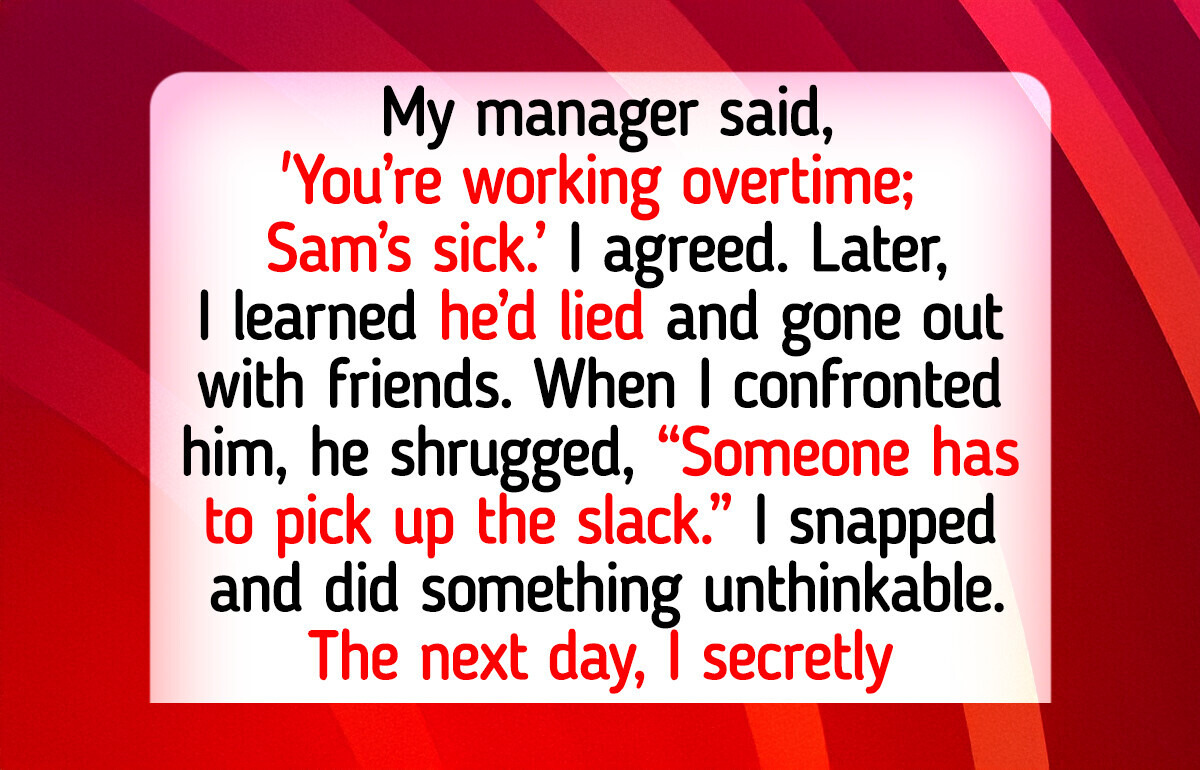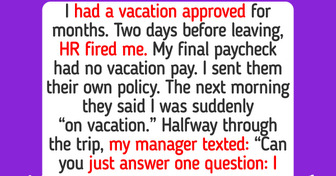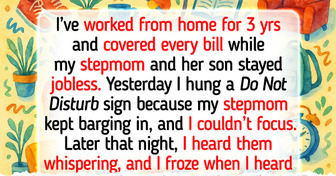This was great!! Good comeback!!
I Refuse to Do My Coworker’s Job for Free—So I Made Him Pay

Sometimes, workplace frustration boils over, and what feels satisfying isn’t always by the book. Lila, a hotel administrator, ended up working extra hours because a coworker lied about being sick. Her reaction sparked a dramatic confrontation, and she still isn’t sure if she went too far.
Hey Bright Side,
I’m Lila, 32, and I work at a busy hotel as an administrator. One evening, my manager told me, “You have no choice but to work overtime; Sam for the night shift is sick.” I agreed because I didn’t want to rock the boat.
Later that night, I found out Sam wasn’t sick at all. He was out partying with friends. When I confronted him, he just laughed and said, “You deserve it, as usual. Someone has to pick up the slack.”
I lost it. Instead of just telling HR, I did something almost unthinkable.
The next day, I quietly accessed his schedule and swapped his shifts with double the weekend work, including peak nights he hated. I even added some extra administrative tasks he usually avoids. I didn’t tell him until he showed up for the first double shift... and his face was priceless.
It felt incredible (satisfying, even), but now I’m wondering if I crossed a line. Was I right to get revenge like that, or did I go too far?
— Lila
Thank you, Lila, for sharing your story. Well, sometimes standing up for yourself feels good, but it can also blur the line between justice and revenge. Here is what we, at Bright Side, think:
1. Reflect on motivation
- It might be best to take a moment and ask yourself why you reacted this way. Frustration and anger are natural, but acting out of revenge can have consequences, both professionally and personally. Mindfully considering your motives can help you decide if similar actions are worth the risk.
2. Consider long-term impact
- While your actions sent a clear message, consider the long-term consequences. Could this affect promotions, references, or workplace trust? Sometimes dramatic reactions teach a lesson, but they can also backfire. It might be best to weigh short-term satisfaction against future opportunities.
3. Learn from the situation
- Even controversial acts can reveal patterns you want to address. Sam’s behavior clearly isn’t acceptable. It might be best to use this experience to set healthier systems (documenting issues, requesting formal shift policies, or seeking managerial support) so you don’t feel the need for extreme measures again.
What would you do in this situation? Read the story of a parent who refused to share their son’s grief money with their mother-in-law. It’s a tense, real-life tale about boundaries, family expectations, and making tough choices when emotions run high.
Comments
you lost 36790 aura points for what you have done
Lila could get in deep trouble for retaliation if she is not in charge of scheduling. She needs to document these occurrences and go to HR.
Related Reads
HR Fired Me Before My Vacation — They Forgot One Thing

I Refuse to Be Treated Like a Servant in My Own Home, So I Had to Draw the Line

I Refuse to Pay Back the Extra Money After Being Paid Twice by Mistake

12 Stories That Prove Kindness Is the Only Survival Skill That Doesn’t Fail

15 Internet Stories Where Kindness Arrived Before It Was Too Late

15 Moments That Show Kindness Is Quiet but Changes Everything

16 Moments That Remind Us to Stay Kind Even If the World Turns Ice Cold

I Refuse to Forgive My Wife for What She Did to My Son

20 Stories That Remind Us to Stay Kind Even When Life Stops Playing Fair

I Refuse to Help My Pregnant Sister, and I Don’t Feel Guilty

I Funded My Wife’s Luxury Demands—She Made Me Regret Every Penny

I Refused to Give Up My Baby, So My Mom Exposed a Terrible Secret



